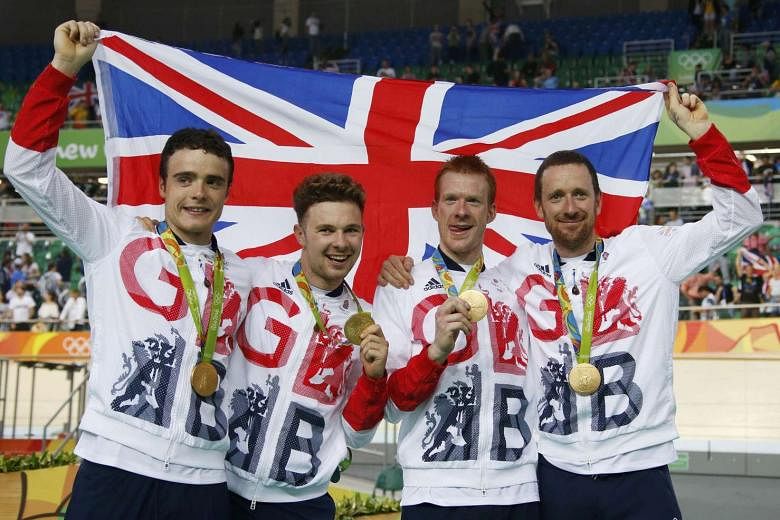RIO DE JANEIRO (Reuters) - The "Great Haul of China" in 2008 was seen as something of an aberration, 2012's success was surely all through home advantage but, after their best medal return from an overseas Games, Britain is indisputably back as an Olympic superpower.
Twenty years ago, long before marketers invented "Team GB", Britain trudged home from Atlanta with a solitary gold medal courtesy of rowers Steve Redgrave and Matt Pinsent and just 15 in all, placing a humiliating 36th in the medal table.
They leave Rio with 67, including 27 gold, sitting proudly second, above China and behind only the all-powerful United States.
Remarkably that tally surpasses the 65 with 29 gold from the home Games of four years ago and is topped only by the London Games of 1908 when they won 146, 56 of them gold - totals inflated somewhat by many events where barely anyone else took part.
"It makes me bloody proud," Sebastian Coe, the former head of the London Games organising committee said this week. "What a legacy. We wanted to ensure not just participation but to inspire people.
"We are winning medals across sports you would not have even have dreamed of even 10 years ago."
When Britain started to begin punching its weight again in Sydney 2000, with 11 golds, the hosts joked that they could win only in sports where you have to sit down.
While it is true that cycling, rowing, sailing, equestrian and canoeing have continued to provide the bulk of the golds, the joke no longer holds water as Britain have won in Rio across 15 sports, more than any other nation. They also medalled in 18 of the 23 sports entered.
Track cycling was again the cash cow, as every member of the team came home with something in a haul of six golds, four silvers and a bronze.
Among those winners were Bradley Wiggins, who now has the most medals of any British Olympian with eight, including five gold, and Jason Kenny, who joined Chris Hoy on six as winner of most golds. Laura Trott's double in Rio made her the all-time leading woman with four.
Rowing brought home three more, athletics, through Mo Farah, sailing, canoeing and equestrian, two each.
There were single golds in taekwondo, hockey, golf, tennis, swimming, boxing and triathlon but perhaps the most eye-catching performances came in gymnastics, where Max Whitlock won two golds and the country seven medals in all having never previously stood atop the podium.
The reasons behind Britain's turnaround are varied but one constant and key driver has been the huge financial support offered by national lottery funding, which began in 1997.
That has enabled a wide variety of sports to invest hugely in facilities, coaching and all the other costly support network necessary to compete at elite level. "Our high performance system is the envy of the world, thanks to sustained investment by our Government and The National Lottery," said Liz Nicholl, chief executive of UK Sport. "The world-leading coaching, science, medicine and technology provided has enabled talent and potential to translate into world-beating performances." Bill Sweeney, British Olympic Association CEO added: "It has been a brilliant Games but this is not an overnight success ... this is 20 years in the making and we've now enjoyed five successive Games of medal growth. "No-one has come close to that and it's an unbelievable achievement."

